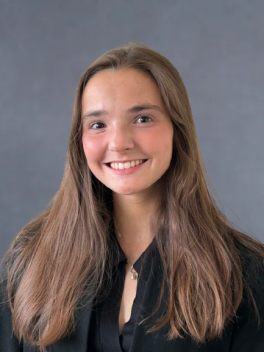Political Science Bachelor of Arts
The BA degree program offers Political Science students a wide range of opportunities to study the many dimensions of politics and government including elections and electoral behavior, legal and judicial politics, foreign policy and war, political economy and development, the political implications of race, gender and ethnicity, and the moral and ethical issues associated with democracy, global justice, and human rights.
Students take at least one course in each of the four main subfields of the discipline: American Politics (the study of political behavior and institutions in the United States), Comparative Politics (the study of non-US political behavior and institutions), International Relations (the study of relationships between states), and Political Theory (the study of the concepts and values that inform political life). Students also choose an area of specialization in which they take at least four courses.
The Major
Areas of specialization include the four traditional subfields of the discipline (American Politics, Comparative Politics, International Relations, and Political Theory) or the following thematic specializations:
1) Democracy and law
This specialization focuses on the workings of democratic institutions: how they are designed, how they influence political outcomes, and how they perform in different social and historical contexts. You will learn how institutions shape individual behavior, how political, economic, and social institutions work together, and how political values and ideals are given concrete legal form.
2) Political identities and allegiances
How does who you are – your gender, race, ethnicity, religion, and nationality – matter in politics? This specialization examines how individual and group identities are created and how they shape political decisions ranging from how to vote to whether to join a revolution. You’ll develop critical thinking, writing and speaking skills, and learn how to gather and synthesize information, develop hypotheses, and draw inferences about the causes and consequences of political behavior.
3) Political economy and development
This specialization is designed to help you better understand the political dimensions of economic policy. You will learn how to analyze the complex relationships between state and economy both domestically and internationally and to assess competing theories about the causes and consequences of globalization, and gain a theoretical and historical understanding of the development of domestic and international political and economic institutions.
4) Cooperation, conflict and violence
This specialization addresses the origins of violent conflict and the sources of cooperation and stability at both the domestic and international levels. You’ll acquire critical and analytical tools that are needed to promote peaceful conflict resolution, stable and inclusive political institutions, and more effective global governance and diplomacy.
5) Inequality and justice
This specialization focuses on the values that structure political life and the ways in which those values are shaped by and embodied in political institutions. Learn how political ideals such as democracy, freedom, justice, and human rights have been defined in different ideological traditions and different historical contexts, and how these ideals inform individuals’ understandings of what their interests are.
6) Political leadership and reform
This specialization is designed to build the skills that are necessary to organize and lead successful campaigns for political change. Through comparative, historical, policy, and case-study analyses, you’ll learn how to organize political campaigns and movements, how to build coalitions with like-minded allies, and how to translate ideals into policies and solutions.
7) Political analysis
All social-scientific inquiry appeals to concepts, values, and empirical claims about the world that are contestable in principle and are often contested in fact. This specialization will train you in the analytical, conceptual, and methodological skills necessary to critically evaluate such claims and to apply them intelligently to the study of political life.
8) American Politics
This subfield of political science studies political behavior and institutions in the United States.
9) Comparative Politics
This subfield of political science studies political behavior and institutions beyond the United States.
10) International Relations
This subfield of political science focuses on relationships between states.
11) Political Theory
This subfield of political science examines the concepts and values that inform political life.
Political Science prepares students for a wide range of career opportunities in law, business, political analysis and consulting, public policy, secondary and higher education, journalism, and many other fields.
For more information, check out the careers in political science page.
[pdf] - PDF files require the use of Adobe Acrobat Reader software to open them. If you do not have Reader, you may use the following link to Adobe to download it for free at: Adobe Acrobat Reader
Student Profiles

Maryn Cianciolo
Major: Political Science
Graduation Year: 2027
Hometown: Cleveland, Ohio
I chose to major in Political Science because of long-held attraction to political discourse. To paint a more vivid picture: I remember in middle school, I was watching the news, and I was commenting on the round-table political discussions, and my dad overheard me and recommended I study political science. I never heard of this discipline when he mentioned it, but my attraction to political discourse, theory, and literature grew. When it was time for me to declare my major in applying for college, I knew I wanted to delve into my passion for political science.
I serve on the Academic Affairs committee for the Undergraduate Student Government, and I am currently helping to plan for the spring Academic Identity Week. I also was accepted into NEW Leadership Ohio this spring, which was a week-long program through the John Glenn College where I learned key skills on how to bolster female representation in government and policymaking.
After graduation, I plan on pursuing law school with particular interests in intellectual property law or health law. I have heightened interest in how the law will change with emerging technologies, such as AI and CRISPR gene editing technology.
I hope future students understand that the breadth of careers political science offers. Many students enter this major under the assumption that there are only two career areas to pursue: government or law. However, during my time thus far in political science, I have embraced that political science as a discipline is just that: a discipline, and as a discipline, political science teaches you theory and reasoning that helps you pursue a plethora of careers. You do not have to go into government or argue in a courtroom; you can be a campaign advisor, a political correspondent, a political journalist, and so much more in political science.
Dylan Gilbo
Major: Political Science and Biochemistry
Graduation Year: 2029
Hometown: Oakland Park, Kansas
I am currently Pre-Law and want to obtain a role in government so that I can help solve the problems of the 21st century through diplomacy. Therefore, I thought there would be no better way to learn about the structure of politics and how to navigate the process than through learning political science.
My current professor of Political Manipulation, Jiyoon Kim, has helped me realize that there is no such thing as wasted time, but that each opportunity we participate in is another chance to grow and learn what we want to continue to abandon. She shared her own life story with me, opening my eyes to how seeming mistakes can actually turn out to be incredibly important in shaping character and opening previously hidden doors.
I am currently working on research to discover trends in Writs of Certiorari under Professor Janet Box-Steffensmeier. I am incredibly grateful that she would take on a freshman, and this opportunity has already taught me so much about what it means to be a part of a team, the responsibilities that come along with it, as well as the elation of success when a task is completed.
After graduation, I hope to attend law school and study to obtain a position in government to be able to bridge science and politics. I hope to use my understandings of both spheres to pass legislation that is influenced by evidence-based research findings to better public health and equality around the world.

Lauren Stafford
Major: Political Science
Graduation Year: 2028
Hometown: Collierville, Tennessee
I wanted to become a Political Science major because I have an interest in how the government works and how politics influence marginalized communities. After graduation, I plan to attend law school; sometime in the future, I would love to work in a government office or as an elected official. I needed a major that will supply me with the skills and knowledge to reach my goals.
Currently, I work as an intern for Ohio Representative Isaacsohn. This internship allows me to sit in legislative meetings, and I do administrative work for the office. Working as an intern in a government office further instills in me the desire to pursue law and improve my community.
I am a member of the Undergraduate Student Government Black Caucus' Student Experience Committee. This organization allows me to connect with other black students on campus with similar interests and passions. Also, I love to work to improve the experiences of students on campus, which is what my committee is centered around.
After graduation, I intend to continue my education at law school. I want to be a lawyer and possible practice Public Interest law or even become a prosecutor.
